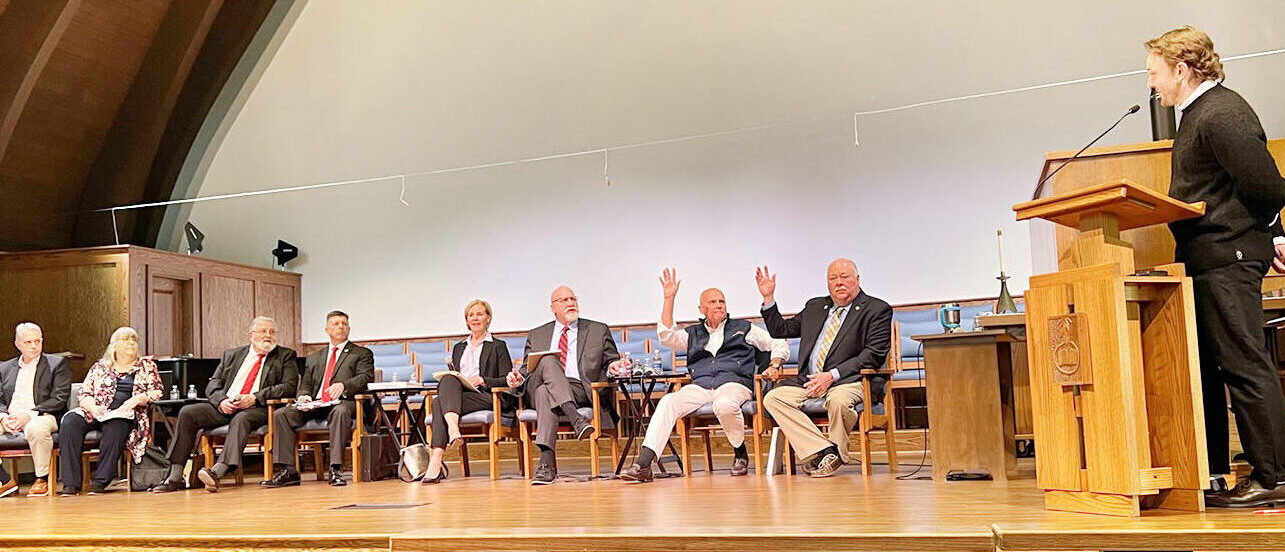Sign Our Petition!
Let our elected leaders know you support changing the rules to allow more attainable housing in Kirkwood
Our Mission:
To educate Kirkwood on the need for more homes and to advocate for policies that will yield a more economically vibrant community for all.
Our Vision:
To realize EnVision Kirkwood 2035’s first guiding principle: Become a community that embraces a diversity of housing and neighborhoods that support citizens of all ages and socio-economic backgrounds.
Steps to Get There:
01
Build Community
K4E seeks to build a community of members who are motivated to help move Kirkwood forward and make some friends in the process
02
Build Coalitions
K4E seeks to build a sustainable political coalition by both educating and persuading the public on the benefits of housing reform
03
Effect Change
K4E seeks to affect housing policy by engaging policy makers directly and by wielding direct electoral power at the ballot box
Frequently Asked Questions:
What does “attainable” even mean?
Attainable generally means that a family is spending no more than 30% of their income on shelter. For a single teacher making $60k a year, an attainable home would cost $1,500 or less per month in mortgage payments or rent.
Isn’t the real problem the tear-downs of starter homes?
Tear-downs are more a symptom of high demand and low supply than a cause of expensive housing. We probably can’t stop people from building nicer homes on their land given how much they paid for it, but what we can do is make sure they have other options to maximize the return on their investment as well like accessory dwelling units (ADUs), duplexes, and townhomes. The starter home can still exist, it just has to look a little different now.
How does luxury development help with attainability?
While expensive new apartments or condos may not seem “attainable” they play an important function in Kirkwood’s housing market. Every family that buys a million-dollar condo at The Aria is a family who is not driving up the price of a starter home to use as a teardown. Then, as The Aria grows older and newer and nicer homes are built to compete with it, the Aria will have to lower its price and slowly but surely age into greater levels of affordability.
What would the financial impact be?
Allowing more development is a massive financial winner for both the City of Kirkwood and its citizens. The city as well as the school, fire, police, park and library districts all benefit from increased property tax revenue, and the city in particular benefits from greater sales tax revenue that those new residents would help to generate. Existing residents would enjoy better city services and lower taxes, and improved property values as their land is allowed to be put to more productive uses (if you go to sell your home and a prospective buyer is allowed to build a duplex or quad-plex on the lot, they may be willing to pay more).
Shouldn’t we just let the free market decide?
Yes! We absolutely should, but the current system is not the free market. Government over-regulation, primarily in the form of overly-restrictive zoning, has meant that supply has not been allowed to meet the increased demand to live in Kirkwood. By removing these barriers and improving property rights we can improve market efficiency and make everyone better off.
Isn’t density and over-development bad for the environment?
Allowing denser development is actually the most important step we can take for the environment. Denser development in high-demand walkable places like Kirkwood helps to reduce auto-oriented sprawl, thereby cutting carbon emissions and preserving more nature. Further, multifamily buildings consume fewer carbon-intensive construction materials and consume less heating and cooling than single-family homes on a per-person basis.

